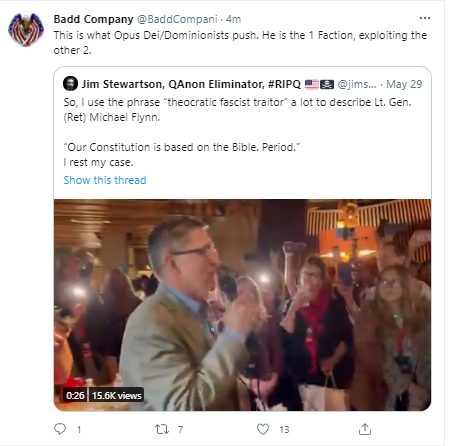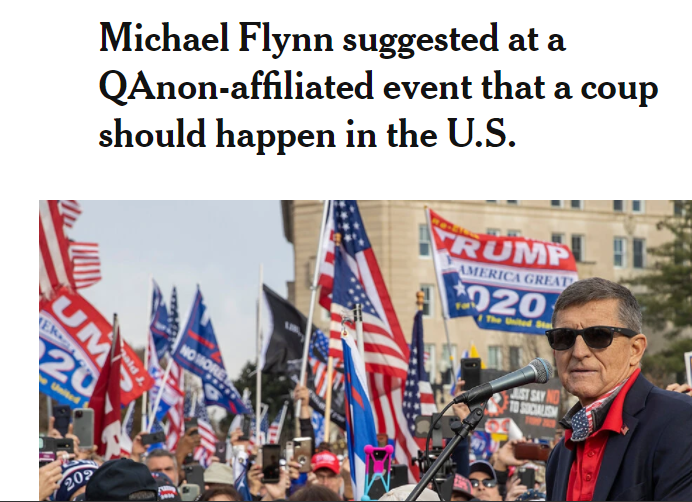This is what I am seeing too. It is based on our Americhean (American + Manichean) zeitgeist. Matt Taibbi calls it the "horseshoe theory." He has unlocked his entire article, which I highly recommend, mostly for people who (mostly) will refuse to read it, but who need to read this. The title is "Congratulations, Elitists: Liberals and Conservatives Do Have Common Interests Now." Here is an excerpt:
The American liberalism I knew growing up was inclusive, humble, and democratic. It valued the free exchange of ideas among other things because a central part of the liberal’s identity was skepticism and doubt, most of all about your own correctitude. Truth was not a fixed thing that someone owned, it was at best a fleeting consensus, and in our country everyone, down to the last kook, at least theoretically got a say. We celebrated the fact that in criminal courts, we literally voted to decide the truth of things.
This new elitist politics of the #Resistance era (I won’t ennoble it by calling it liberalism) has an opposite view. Truth, they believe, is properly guarded by “experts” and “authorities” or (as Jon Karl put it) “serious people,” who alone can be trusted to decide such matters as whether or not the Hunter Biden laptop story can be shown to the public. A huge part of the frustration that the general public feels is this sense of being dictated to by an inaccessible priesthood, whether on censorship matters or on the seemingly daily instructions in the ear-smashing new vernacular of the revealed religion, from “Latinx” to “birthing persons.”
In the tone of these discussions is a constant subtext that it’s not necessary to ask the opinions of ordinary people on certain matters. As Plato put it, philosophy is “not for the multitude.” The plebes don’t get a say on speech, their views don’t need to be represented in news coverage, and as for their political choices, they’re still free to vote — provided their favorite politicians are removed from the Internet, their conspiratorial discussions are banned (ours are okay), and they’re preferably all placed under the benevolent mass surveillance of “experts” and “professionals.”
Add the total absence of a sense of humor and the inability of “moral clarity” politics to co-exist with any form of disagreement, and there’s a reason why traditional liberals are suddenly finding it easier to talk with old conservative rivals on Fox than the new authoritarian Snob-Lords at CNN, MSNBC, the Daily Beast or The Intercept. For all their other flaws, Fox types don’t fall to pieces and write group letters about their intolerable suffering and “trauma” if forced to share a room with someone with different political views. They’re also not terrified to speak their minds, which used to be a virtue of the American left (no more).
From the moment Donald Trump was elected, popular media began denouncing a broad cast of characters deemed responsible. Nativists, misogynists and racists were first in line, but from there they started adding new classes of offender: Greens, Bernie Bros, “both-sidesers,” Russia-denialists, Intellectual dark-webbers, class-not-racers, anti-New-Normalers, the “Substackerati,” and countless others, casting every new group out with the moronic admonition that they’re all really servants of the “far right” and “grifters” (all income earned in service of non-#Resistance politics is “grifting”). By now conventional wisdom has denounced everyone but its own little slice of aristocratic purity as the “far right.”
They’re wrong on the ideology, but right about one thing: they’ve created a brand of imperious elite politics so revolting that it has the potential to unite even this Balkanized wreck of a country. If they keep this up, liberals and conservatives may start talking for real, and maybe even fix a thing or two.



